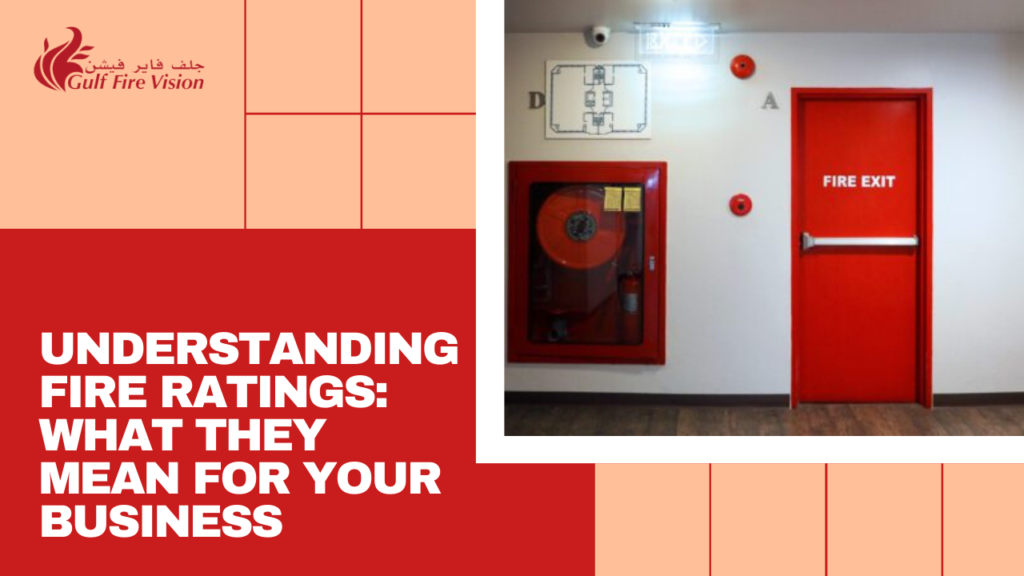
Fire ratings are a critical aspect of building safety, providing valuable information about the ability of construction materials and assemblies to withstand fire and prevent its spread. As a business owner or property manager, understanding fire ratings is essential for ensuring the safety and compliance of your premises. In this blog post, we’ll explore the significance of fire ratings, decipher what they mean, and discuss their implications for your business.
What Are Fire Ratings?
Fire ratings are standardized classifications assigned to building materials, components, and assemblies based on their performance in fire tests. These ratings indicate the duration for which a material or assembly can withstand exposure to fire, heat, and smoke before it fails or allows fire to spread to adjacent areas.
Deciphering Fire Ratings:
1. Fire Resistance: Fire ratings typically include three key elements: fire resistance, integrity, and insulation. Fire resistance refers to the ability of a material or assembly to withstand exposure to fire without collapsing or significantly degrading. It is expressed in terms of time, such as 30 minutes, 60 minutes, or 120 minutes, indicating the duration of fire resistance provided.
2. Integrity: Integrity refers to the ability of a material or assembly to prevent the passage of flames and hot gases from one side to the other during a fire. A higher integrity rating indicates greater effectiveness in containing fire and preventing its spread to adjacent areas.
3. Insulation: Insulation relates to the material’s ability to limit the transfer of heat through the assembly during a fire. Higher insulation ratings indicate better heat resistance and reduced risk of heat transfer to adjacent areas.
Implications for Your Business:
1. Compliance with Building Codes: Understanding fire ratings is essential for ensuring compliance with building codes and regulations. Building codes typically require certain fire ratings for various building elements, such as walls, doors, floors, and ceilings, to minimize the spread of fire and protect occupants.
2. Enhanced Safety: Materials and assemblies with higher fire ratings provide greater protection against fire hazards, reducing the risk to occupants and property. Investing in fire-rated materials and systems can enhance the overall safety and resilience of your business premises.
3. Insurance Requirements: Insurance providers may require specific fire ratings for building materials and systems as a condition for coverage. Compliance with fire ratings can help mitigate insurance risks and potentially lower insurance premiums for your business.
4. Liability Protection: Failure to comply with fire rating requirements can result in legal liabilities in the event of a fire-related incident. By understanding and adhering to fire rating standards, you can minimize the risk of liability and protect your business interests.
Fire ratings play a crucial role in determining the fire resistance and safety of building materials and assemblies. As a business owner or property manager, understanding fire ratings is essential for ensuring compliance with building codes, enhancing safety, and protecting your business against fire hazards and liabilities. At Gulf Fire Vision, we provide comprehensive fire safety solutions tailored to your business needs, including fire-rated materials, systems, and consulting services. Contact us today to learn more about how we can help you safeguard your business against the threat of fire.
